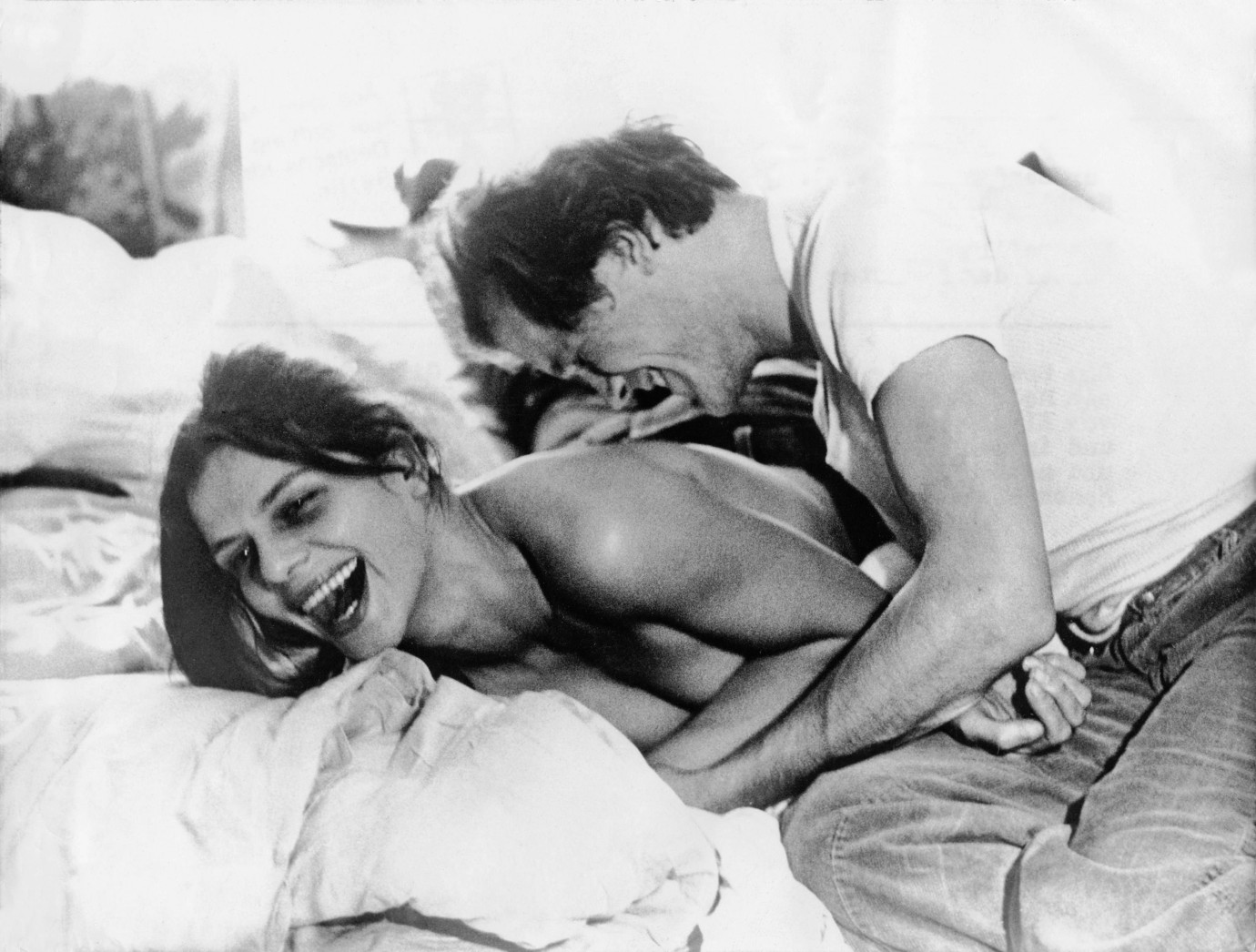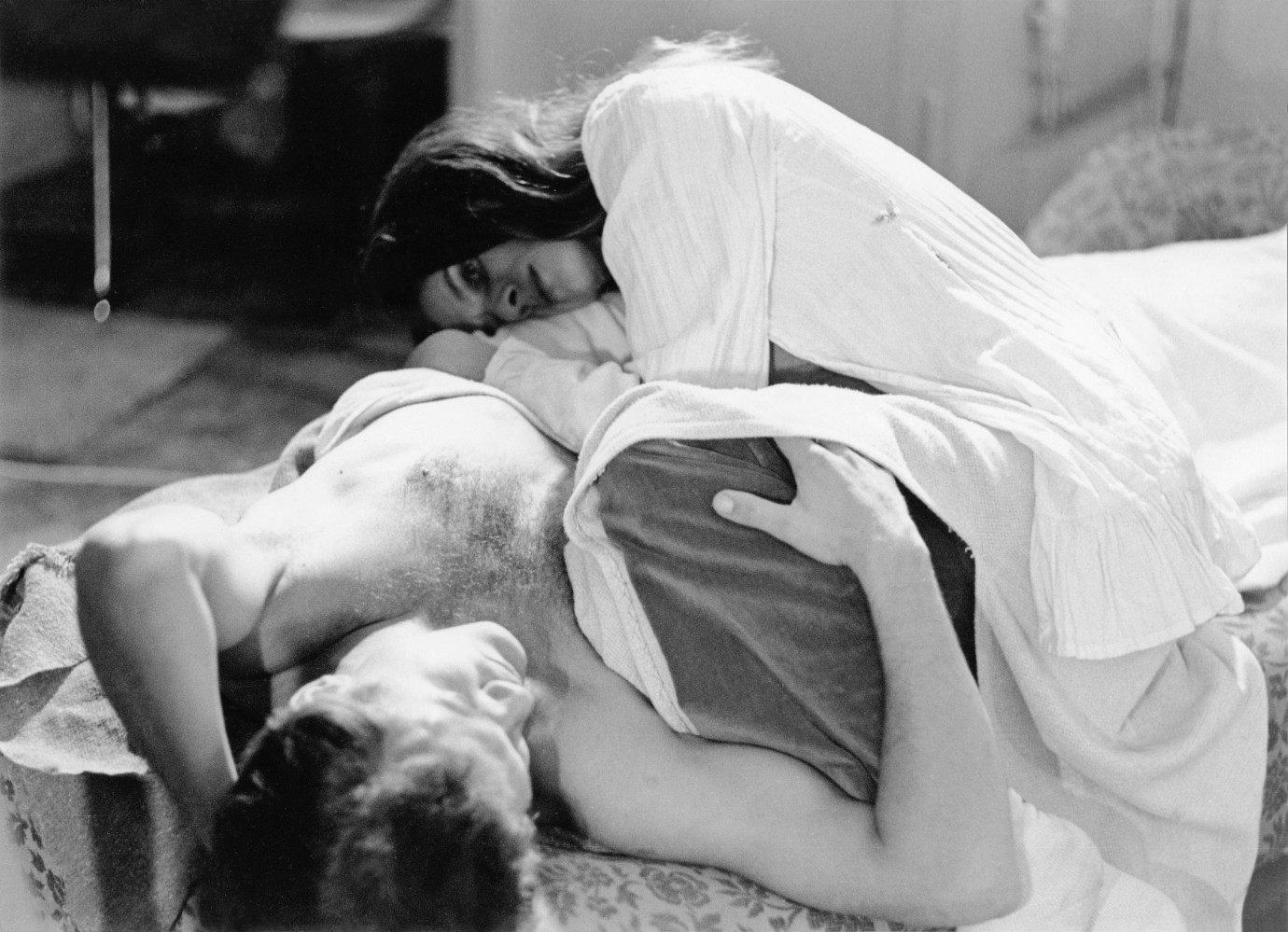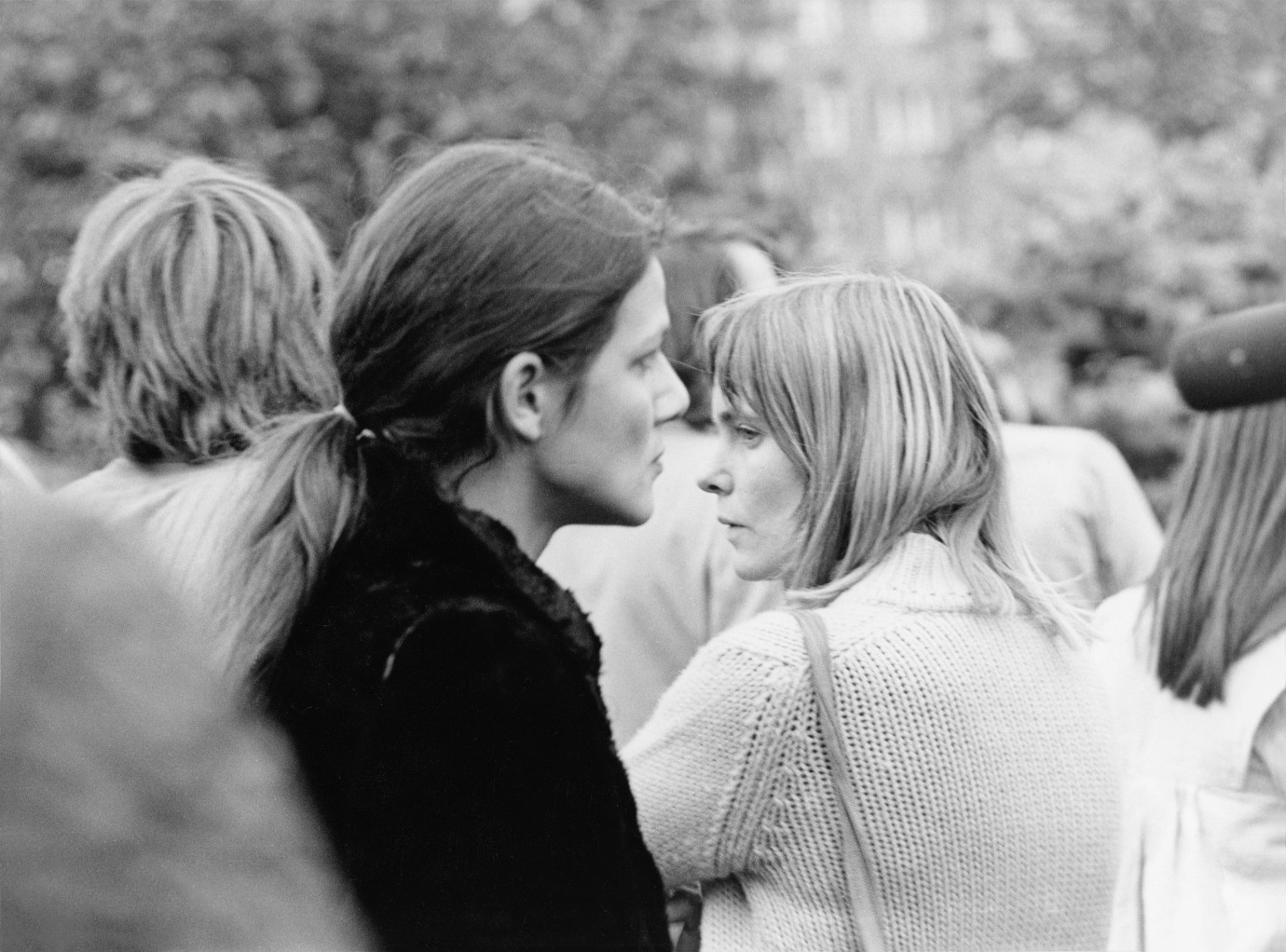Unter dem Pflaster ist der Strand
Under the Pavement Lies the Strand

Grischa Huber, Heinrich Giskes
Unter dem Pflaster ist der Strand | Under the Pavement Lies the Strand by Helma Sanders-Brahms
BRD 1975, Retrospective
© Deutsche Kinemathek / Helma Sanders GmbH, Anne Sanders

Heinrich Giskes, Grischa Huber
Unter dem Pflaster ist der Strand | Under the Pavement Lies the Strand by Helma Sanders-Brahms
BRD 1975, Retrospective
© Deutsche Kinemathek / Helma Sanders GmbH, Anne Sanders

Grischa Huber (links | left)
Unter dem Pflaster ist der Strand | Under the Pavement Lies the Strand by Helma Sanders-Brahms
BRD 1975, Retrospective
© Deutsche Kinemathek / Helma Sanders GmbH, Anne Sanders
With
- Grischa Huber
- Heinrich Giskes
- Ursula von Berg
- Gesine Strempel
- Traute Klier-Siebert
- Barbara Finkenstaedt
- Heinz Hoenig
- Günter Lampe
Crew
| Director | Helma Sanders-Brahms |
| Screenplay | Heinrich Giskes, Grischa Huber, Helma Sanders-Brahms |
| Cinematography | Thomas Mauch |
| Editing | Elfi Tillack |
| Sound | Georg Lehner |
| Producer | Helma Sanders-Brahms |
| Commissioning Editor | Eckart Stein |
Additional information
DCP: Deutsche Kinemathek, Berlin
Helma Sanders-Brahms
Born in Emden, Germany, in 1940. Following university, she worked as a TV announcer and trained in Italy with directors Sergio Corbucci and Pier Paolo Pasolini. After directing political, critical TV programs, she turned toward more subjective forms of expression with Unter dem Pflaster ist der Strand (1975). The central themes of her films include the women’s movement (Shirins Hochzeit, 1976), literary history (Heinrich, 1977), and Germany’s past (Manöver, 1988). Her films have been successful in many European countries.
Filmography
1971 Die industrielle Reserve-Armee 1974 Erdbeben in Chili 1975 Unter dem Pflaster ist der Strand 1976 Shirins Hochzeit 1977 Heinrich 1980 Deutschland, bleiche Mutter 1981 Die Berührte 1984 Flügel und Fesseln 1986 Felix. Episode 1: Er am Ende · Laputa 1988 Manöver 1992 Apfelbäume 1994 Jetzt leben -– Juden in Berlin 1997 Mein Herz – Niemandem! 2003 Die Farbe der Seele 2008 Geliebte Clara
Bio- & filmography as of Berlinale 2019